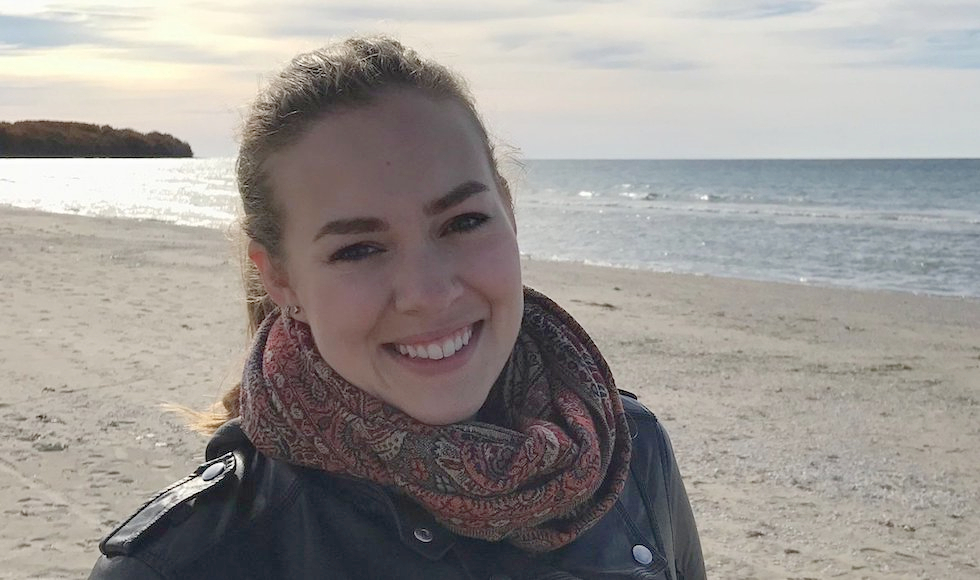Why every day is World Water day for Global Health grad

Graduate of McMaster University's MSc Global Health program Meghan Brockington is working with Northern Water Futures, a major multi-disciplinary, multi-institutional research project led by Wilfrid Laurier University and funded by the Global Water Futures program.
March 22 was World Water Day, which brings awareness to the world’s water crisis by recognizing that billions of people are living without safe water, and that marginalized groups are often overlooked and discriminated against as they try to access it.
“We’re in the midst of a global water crisis and communities right here in Canada are being directly affected,” says McMaster Global Health program graduate Meghan Brockington.
It’s a reality she sees working as a project manager at Northern Water Futures, a major multi-disciplinary, multi-institutional research project led by Wilfrid Laurier University and funded by the Global Water Futures program.
“Northern Canada is one of the most rapidly warming regions on the planet,” Brockington explains. “Climate change is disproportionately impacting marginalized communities in this region and it’s imperative that we address the issue of water and the role it plays in that.”
In fact, water plays a crucial role in the well-being and vitality of northern communities, their food security, and the responsible development of northern resources. “The Northwest Territories have some of the most pristine and clean freshwater resources in the world, and our goal is to ensure it stays that way,” she says.
Taking a leading role in sustainable development in the North, Northern Water Futures aims to deliver risk management solutions to manage water futures in Canada and other cold regions where global warming is changing landscapes, ecosystems and the water environment.
“This really is global health at home,” says Brockington, whose job involves works closely with communities to develop ways of knowledge-sharing. “We aim to ensure that they’re armed with two ways of knowing – both western science and traditional knowledge – to help them in their own needs and decision-making processes.”
Water has been an important part of Brockington’s life for as long as she can remember. A competitive swimmer from a young age, she went on to be a Division One NCAA scholarship athlete at the University of South Carolina, where she studied Marine Science and Public Health while swimming competitively. She also spent time teaching life-saving swimming skills to adults in Vietnam, where she interned with Global Affairs Canada as a specialist in food security.
While at McMaster, she wrote her thesis on food security in the Arctic, which prepared her for her next move: her job with Northern Water Futures. “The global health program was really the launch of my career, allowing me to explore a critical global health problem that I’m directly working to tackle in tangible ways,” she says.
Having worked in a variety of resource-poor locations, such as refugee camps, where access to reliable clean water is a significant challenge, Brockington is acutely aware of the fundamental necessity of clean water for global health.
For her, World Water Day serves as an annual reminder that we, as a global community, share the collective responsibility of protecting our water resources.


